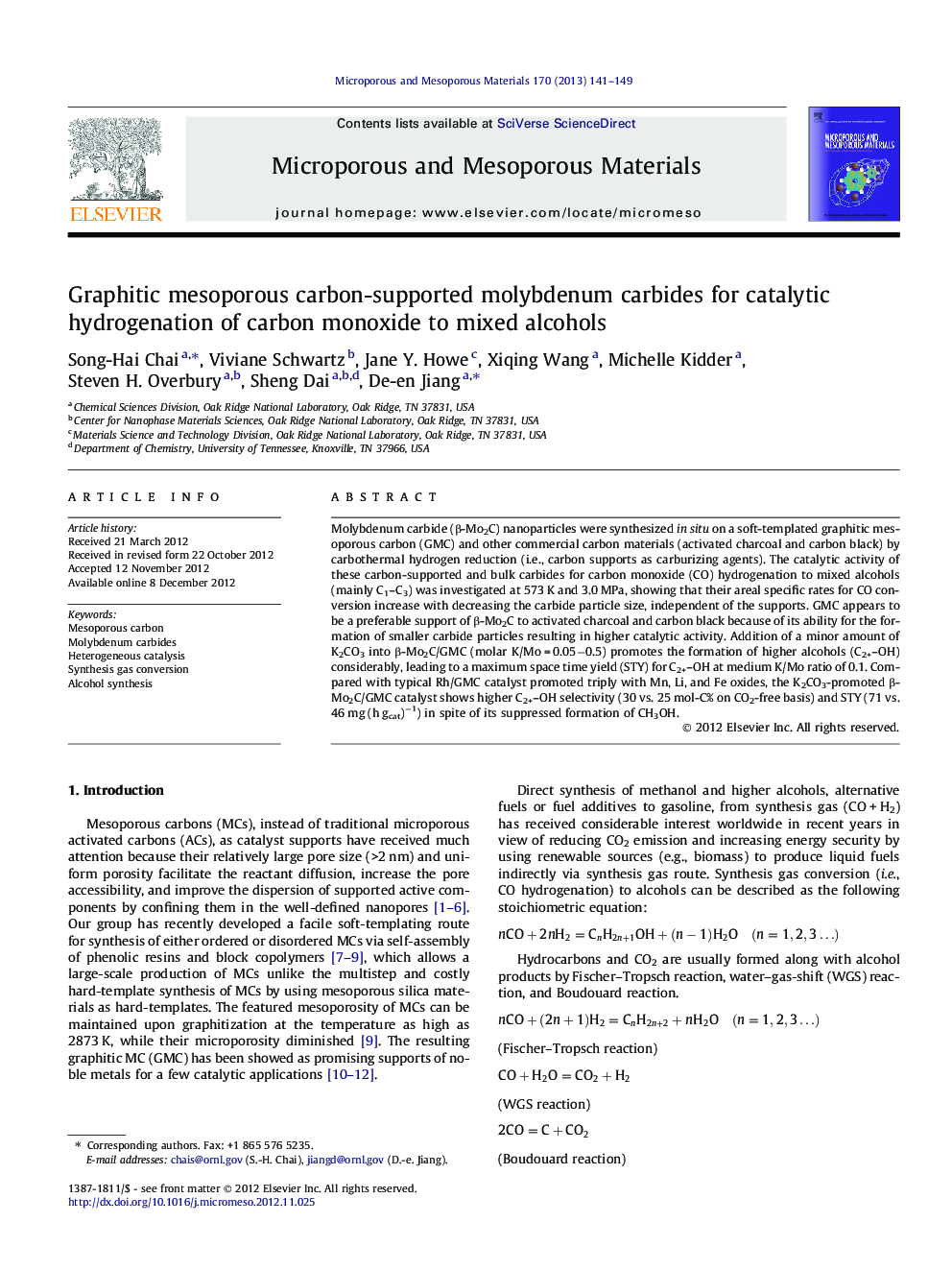| Article ID | Journal | Published Year | Pages | File Type |
|---|---|---|---|---|
| 73565 | Microporous and Mesoporous Materials | 2013 | 9 Pages |
Molybdenum carbide (β-Mo2C) nanoparticles were synthesized in situ on a soft-templated graphitic mesoporous carbon (GMC) and other commercial carbon materials (activated charcoal and carbon black) by carbothermal hydrogen reduction (i.e., carbon supports as carburizing agents). The catalytic activity of these carbon-supported and bulk carbides for carbon monoxide (CO) hydrogenation to mixed alcohols (mainly C1–C3) was investigated at 573 K and 3.0 MPa, showing that their areal specific rates for CO conversion increase with decreasing the carbide particle size, independent of the supports. GMC appears to be a preferable support of β-Mo2C to activated charcoal and carbon black because of its ability for the formation of smaller carbide particles resulting in higher catalytic activity. Addition of a minor amount of K2CO3 into β-Mo2C/GMC (molar K/Mo = 0.05−0.5) promotes the formation of higher alcohols (C2+–OH) considerably, leading to a maximum space time yield (STY) for C2+–OH at medium K/Mo ratio of 0.1. Compared with typical Rh/GMC catalyst promoted triply with Mn, Li, and Fe oxides, the K2CO3-promoted β-Mo2C/GMC catalyst shows higher C2+–OH selectivity (30 vs. 25 mol-C% on CO2-free basis) and STY (71 vs. 46 mg (h gcat)−1) in spite of its suppressed formation of CH3OH.
Graphical abstractK2CO3-promoted β-Mo2C catalyst supported on graphitic mesoporous carbon shows higher alcohol selectivity and space time yield than typical Rh/GMC catalyst promoted triply with Mn, Li, and Fe oxides.Figure optionsDownload full-size imageDownload as PowerPoint slideHighlights► Carbothermal synthesis of β-Mo2C on novel graphitic mesoporous carbon (GMC). ► Synthesis gas conversion to mixed alcohols over GMC-supported β-Mo2C catalysts. ► Dependence of areal specific rate for CO conversion on the β-Mo2C particle size. ► Enhanced formation of higher alcohols (C2+–OH) by promoting β-Mo2C/GMC with K2CO3. ► Higher C2+–OH yield over K2CO3/β-Mo2C/GMC than a typical Rh-based catalyst.
